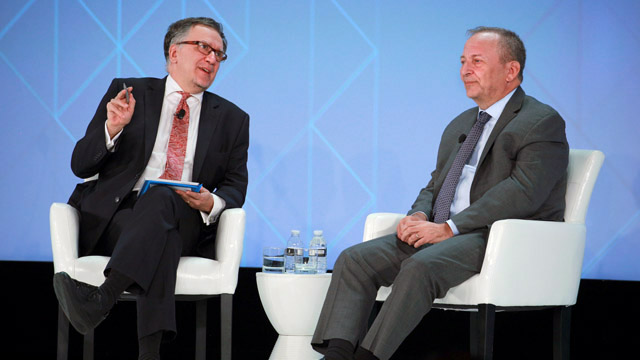To say that Larry Summers is skeptical of the economic plans put forth by President-Elect Donald Trump and his advisers would be an understatement. The former secretary of the Treasury labeled the way Trump’s team plans to pay for massive infrastructure projects “fundamentally flawed.”
Speaking at CME Group’s Global Financial Leadership Conference, Summers deployed dry wit and sarcasm in evaluating some of the Trump team’s more high-profile plans. Summers took specific aim at the economic plan outlined by private equity investor Wilbur Ross and Professor Peter Navarro of the University of California-Irvine, which calls for massive amounts of infrastructure projects to be done by private companies and paid for by tax credits. Summers pointed out that many of the biggest infrastructure projects don’t offer any real return. Furthermore, the lure of a tax credit is misguided because the types of large companies who could invest in such projects generally don’t pay much in the way of taxes.
“It is mad that in a country that can essentially borrow at zero that Laguardia airport looks the way it does and that we have paint chipping from the walls of schools.” However, Summers added that the economics of the Navarro-Ross plan simply aren’t feasible. “If it was written by a sophomore in my class it would not have received a very good grade,” the Harvard professor added.
Summers also commented on the overall health of the global economy and questioned the strategy behind some of the rhetoric used in the US presidential election.
“In an effort to protect workers in Ohio from competing with workers in Mexico to produce products more cheaply. … We have used rhetoric that has driven down the value of the peso, making it cheaper for products to be produced in Mexico,” Summers explained
Despite headlines that often suggest the contrary, Summers emphasized that the global economy is in a historically good place. Infant mortality rates are declining worldwide while literacy rates are climbing. And Summers believes a safe and stable financial system plays an important part in that prosperity.
“Millions of people around the world who have never heard of derivatives, who think a “call” is something you do with a phone and think “put” is a verb, are better off because of financial markets.”
